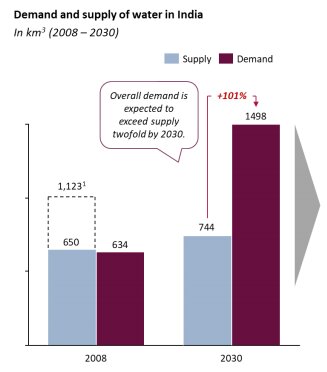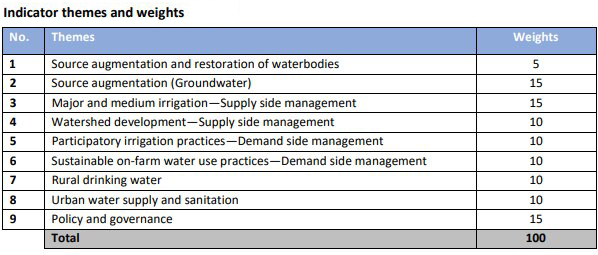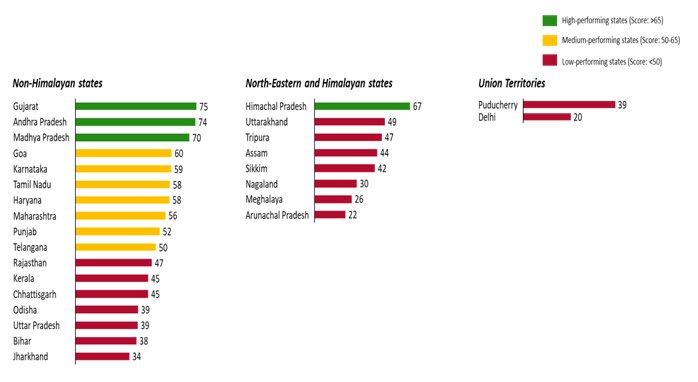Governance
Composite Water Management Index 2.0
- 24 Aug 2019
- 3 min read
NITI Aayog in association with Ministry of JAL Shakti and Ministry of Rural Development released Composite Water Management Index 2.0.
Background to CWMI
- India is experiencing a very significant water challenge, approximately 820 million people of India - living in twelve river basins across the country have per capita water availability close to or lower than 1000m3 – the official threshold for water scarcity as per the Falkenmark Index.
About Report
- NITI Aayog first launched and conceptualized the Composite Water Management Index in 2018 as a tool to instil a sense of cooperative and competitive federalism among the states.
- It provided actionable guidance to States on where they were doing well absolutely and relatively and what they needed to focus on to secure their water
- The index comprises 9 themes.
Key Findings
- CWMI 2.0 ranks various states for the reference year 2017-18 as against the base year 2016-17.
- Gujarat (continues to hold on to its rank one in the reference year (2017-18), followed by Andhra Pradesh, Madhya Pradesh, Goa, Karnataka and Tamil Nadu.
- In North-Eastern and the Himalayan States, Himachal Pradesh has been awarded rank 1 in 2017-18 followed by Uttarakhand, Tripura and Assam.
- For the first time, Union Territories have submitted their data and Puducherry has been declared the top performer.
- 80% of the states have shown improvement in their water management scores over the last three years.
Falkenmark Indicator or Water Stress Index
- It is one of the most commonly used measures of water scarcity.
- It defines water scarcity in terms of the total water resources that are available to the population of a region; measuring scarcity as the amount of renewable freshwater that is available for each person each year.
- If the amount of renewable water per person per year in a country is
- below 1,700 m3, the country is said to be experiencing water stress.
- below 1,000 m3, it is said to be experiencing water scarcity.
- below 500 m3, it is experiencing absolute water scarcity.








